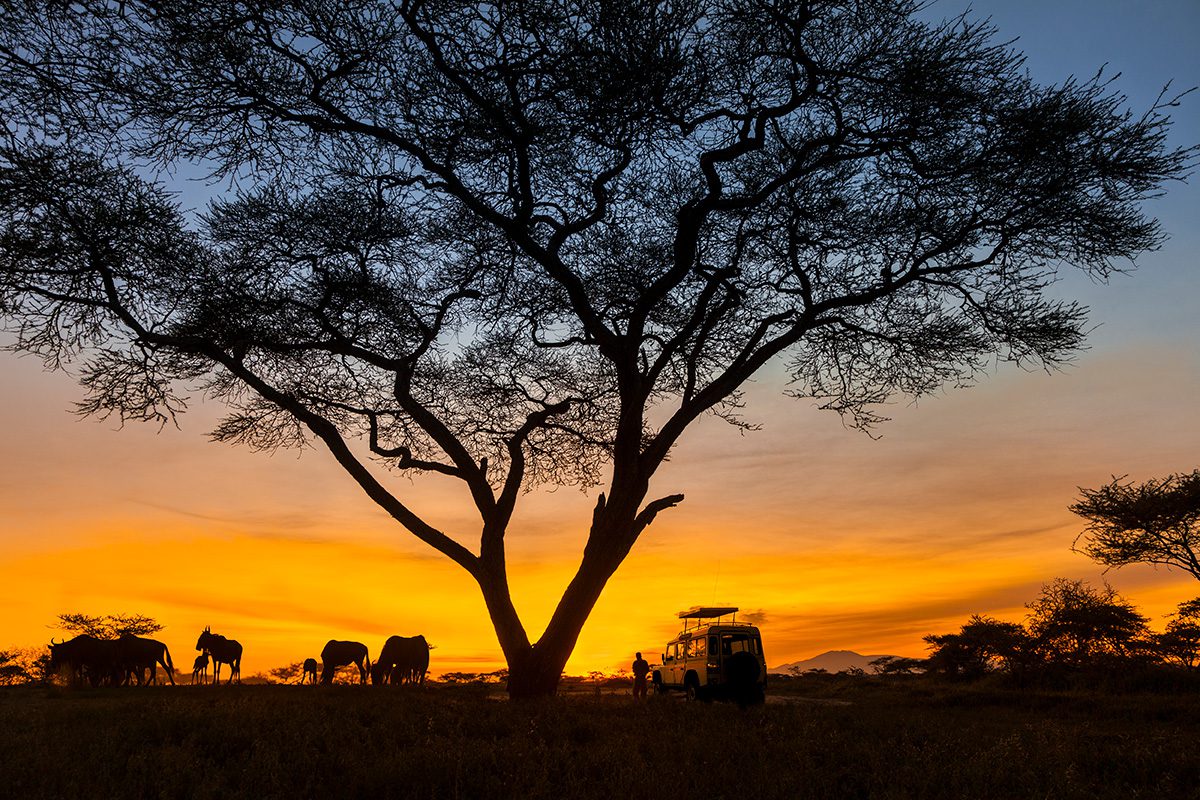Nine Questions You Should ask as You Plan Your Safari

Your dream safari is the result of hundreds of decisions you make before ever stepping on a plane. Choices that might seem inconsequential on paper can have a dramatic impact when you’re on the ground. That’s why it’s important to ask the right questions before you sign on the dotted line–to ensure your once-in-a-lifetime wildlife vacation is what you actually want!
To help you clearly understand what you’re signing up for, our Thomson Trip Consultants put together the following list of questions for aspiring safari travelers. Keep these at the ready as you explore safari options. They’ll help you cut through the noise and get to the truth of the experience.
Click a question to see the Thomson team’s response!
Who Really Operates My Safari?
On the opposite end of the spectrum are safari companies that have decades of personal experience, adhere to a strict vetting process and are in close, daily contact directly with the ground office The booking office in the US and the operations office in Tanzania collaborate on all the details and have the same mission, and the same understanding of who you are. This helps ensure that you get exactly what you booked.
What is the Average Group Size?
The point is, group size can vary wildly, but knowing the averages can give you a sense of just how personalized the service will be on your trip. With smaller groups, it’s generally easier to include exciting little touches here and there: a surprise bush breakfast or an archery workshop at camp, for example.
Equally as important is the maximum number of travelers your outfitter allows per safari vehicle. Will everyone have a window seat? Ample elbow room? Are the cabins custom-fitted for spaciousness? The bigger your group, the more these questions matter.
Do You Have Fuel Restrictions?
On a Tanzanian safari, fuel restrictions serve as the fences—something I implore you to avoid. Companies that carry fuel restrictions limit how far your driver can take you through the bush to prop up their bottom line. Yes, you may see incredible wildlife with a company with fuel restrictions, but that gas gauge is going to literally halt you in your tracks every day. In worst-case scenarios, you may even have to abandon incredible sightings: a hunt in process, for example, or a predator feasting on a kill.
What’s the Food Like?
 …. …. |
Matt: Any safari company worth its salt can offer tasty meals on safari. Even if you’re sleeping in camps out in the bush, a charter flight away from the nearest grocery store, most camp chefs can cook simple fare satisfyingly well: meats, veggies, soups, desserts and more, all in generous proportions. |
It’s still worth asking the operator what flavors they offer: western dishes with a Tanzanian twist? Super important: can they accommodate your dietary preferences and restrictions out in the bush?
Who is My Guide?
You’ll also want to ask whether they are with you from the beginning to end of your trip. Some operators rotate their guides in and out, and travelers can struggle to build a meaningful rapport as a result. And don’t you want the guide to be tuned in to your goals throughout – knowing your preferred pace, your interests, keeping track of what you’ve already crossed off your list, and what you’re still eager to see.
What are the Safari Vehicles Like?
I recommend asking safari operators about their vehicles. How do they stand up against the Serengeti? Do they have extended cabins? Long range shock absorbers? Guaranteed window seats? A roof hatch for shaded 360 degree viewing? The last thing you want is to spend your safari looking over someone’s shoulder.
A good principle to remember is that the more a safari operator customizes their vehicles, the more they care about your experience.
And it’s a big plus if they have snacks in the car!
What Do My Accommodations Look Like?
 …. …. |
Halee: The quality of accommodations on a Tanzania safari varies dramatically, especially if you’re comparing camping accommodations.
There are a few categories of accommodation styles, which we’ve explored in detail in this blog here. |
The key takeaway: “camping accommodations” can mean very different things. There are hundreds of budget operations that rely on dome tents, thin sleeping pads and public latrines.
The difference between that and Thomson’s Nyumba glamping experience is night and day.
Where Are My Accommodations?
 …. …. |
Nicole: You’re coming all this way to see wildlife–but how close can you actually get? Here are the answers we see most often. |
In the Thick of the Action
With accommodations like mobile camps, you can follow the wildlife wherever it goes–a critical consideration for seeing the Serengeti’s Great Migration.
Relatively Close
There are plenty of lodges and campgrounds that aren’t right where the Great Migration is, but an hour or two of driving will get you nearby.
Far Away in the Park
Some camps and permanent lodges are open year-round, and they often sell space at a vast discount in the off season. A budget operator can use those accommodations in their trips to drive down their prices. You’ll pay less at the expense of prime wildlife viewing.
Do You Offer Safari Extensions?
 …. …. |
Andrew: You’re deciding on a safari–but have you thought about trekking through Rwanda to meet mountain gorillas? What about beach-bumming and snorkeling in Zanzibar, a tropical island rich with history, exotic spices and clear, blue waters? |
You may only visit Africa once–you should figure out if you want to extend your trip anywhere post-safari (and whether your operator can even do that!).
Ready to start planning?
Run these questions by the Thomson team at 800-235-0289 – we’re ready to answer!



